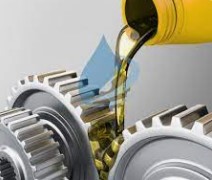Lubricants are essential substances that reduce friction and wear between moving surfaces. They play a crucial role in various industries, from automotive and manufacturing to aerospace and energy. In this blog post, we will explore the importance of it, their types, and their wide-ranging applications in keeping our machinery and equipment running smoothly.
Understanding :
substances that form a protective layer between two surfaces in relative motion. They reduce friction and prevent direct metal-to-metal contact, which can lead to excessive wear, heat generation, and machinery failure. come in different forms, including liquids, semi-solids, and solids, depending on their specific applications.
Types :
Mineral Oil-Based : These are derived from petroleum and are the most common type used in various industries. They offer good lubricating properties, temperature stability, and resistance to oxidation. Mineral oil-based are employed in automotive engines, industrial machinery, and many other applications.
Synthetic : Synthetic are artificially engineered compounds designed to meet specific performance requirements. They offer superior thermal stability, oxidation resistance, and extended lubricant life. Synthetic are commonly used in high-temperature applications, extreme conditions, and in industries where precise lubrication is crucial, such as aerospace and precision manufacturing.
Bio-Based : As the demand for environmentally friendly solutions grows, bio-based have gained popularity. These lubricants are derived from renewable resources, such as vegetable oils, and offer biodegradability and reduced environmental impact. Bio-based lubricants find applications in sectors like agriculture, forestry, and marine industries.
Applications of Lubricants:
Automotive Industry: Lubricants play a vital role in automotive engines, ensuring smooth operation by reducing friction and wear. Engine oils, transmission fluids, and greases are used to lubricate various components, including pistons, cylinders, gears, and bearings. Lubricants also improve fuel efficiency and extend the lifespan of automotive systems.
Manufacturing and Industrial Machinery: Lubricants are crucial in manufacturing and industrial processes to reduce friction and protect machinery. They are used in metalworking operations, such as cutting and machining, to ensure efficient performance and tool longevity. Lubricants also find applications in hydraulic systems, compressors, and gearboxes.
Aerospace and Defense: The aerospace industry relies heavily on lubricants to maintain the performance and safety of aircraft components. Lubricants are used in engines, landing gears, actuators, and other critical systems. They provide protection against extreme temperatures, reduce friction, and ensure reliable operation in demanding conditions.
Energy and Power Generation: Lubricants play a vital role in power generation equipment, such as turbines, generators, and transformers. They help reduce friction and heat generation, improving efficiency and preventing premature wear. Lubricants also aid in the proper functioning of wind turbines and other renewable energy systems.
Marine Industry: Lubricants are essential for marine applications, including ship engines, propellers, and steering systems. They provide corrosion protection, reduce friction in bearings and gears, and ensure smooth operation in harsh marine environments.
Conclusion:
are the unsung heroes that keep the world running smoothly. From automotive engines to manufacturing machinery, aerospace systems, and power generation equipment, lubricants play a vital role in reducing friction, preventing wear, and extending the lifespan of machinery. As industries advance, the development of specialized lubricants with improved performance and environmental sustainability will continue to drive innovation and ensure the smooth operation of our modern world.
to watch milk bowder click here


